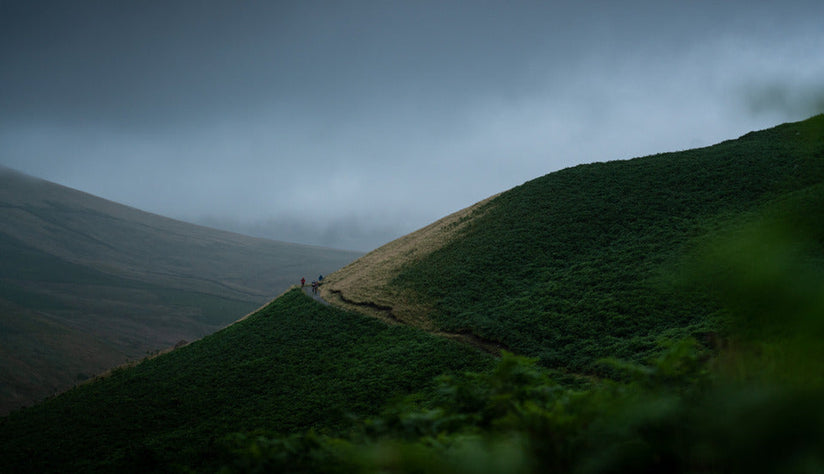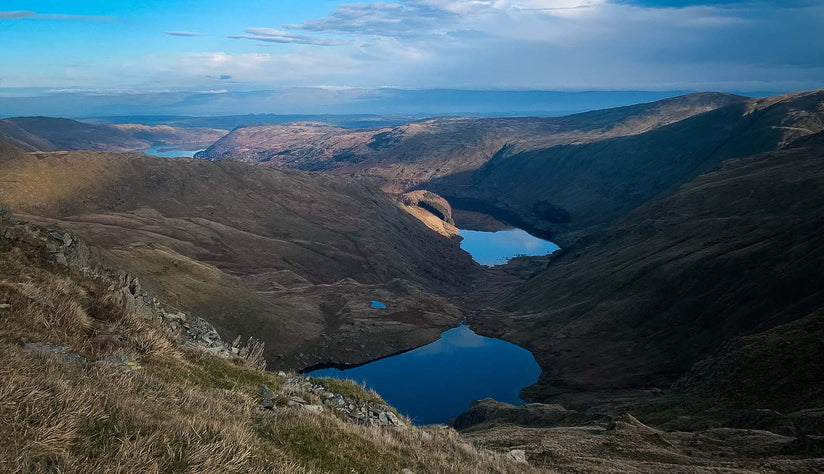Scott Gilmour (GB) has set a new speed record for an unsupported crossing of Siberia’s frozen Lake Baikal, beating the record he set with team-mates Michael Stevenson and Rob Trigwell.

The Norway-based expedition guide, friend of Montane and organiser of the Montane Spine Race covered a distance of around 640km (397 miles) in 11 days, 15 hours and 28 minutes, finishing just after 09:28am UTC on the 16
th March.
This has broken the existing record of 12 days 21 hours and 13 minutes set by Gilmour and his team-mates last year by 29 hours and 45 minutes.
Gilmour, now recuperating in Irkutsk, says he is
“feeling extremely happy” with the record and enjoyed the expedition, but still feels it
“could be done even faster”
Gilmour reached the finish alone, but this didn’t start as a solo expedition. Team-mate Michael Stevenson was with him until the beginning of the 6
th day when he was forced to withdraw having covered more than 300km. Stevenson’s withdrawal from the challenge meant that Gilmour had to complete the remaining 330km of the vast frozen lake alone.
“It was a selfless act” said Scott of his team-mates withdrawal,
“Mike made a really tough decision to pull out and it was a bittersweet moment reaching the end without him. Something he thoroughly deserved to do”.

The duo encountered an iron-hard marching surface on the lake in the first days, stripped bare of snow by the wind. Both suffered bad blisters within the first day and, unfortunately, Stevenson developed a serious infection. As a member of Bolton Mountain Rescue, Stevenson was experienced enough to know that it was ill-advised to head further into the more remote northern end of the lake.
Both adventurers took on the crossing whilst pulling a heavy sled carrying all the clothing, food and other equipment required to survive in such a desolate and inhospitable place.
Gilmour had intended to finish even faster. The weather cleared late-on after a period of snow-storms and whiteout conditions, leading to the decision to tackle the final 90km in one go. However, an injury to his left ankle severely hampered his mobility, forcing him to make camp and rest with less than a marathon to go.
“For a time I thought it was all over with 35km to go.” said Gilmour of the injury. He couldn’t put weight on his left leg for almost an hour and, after a hurriedly built, homemade crutch broke, the British adventurer had to “walk backwards for long stretches just to take the pressure off”.

The trip had also started against a dramatic backdrop as an earthquake measuring 4.6 on the Richter scale shook the area just 4hrs before they took to the ice. On the fifth day, over the usual crunch, crack and rumble of the shifting ice, a massive boom echoed around and the ice moved beneath their feet as another tremor shook the area.
Evidence of the new speed record crossing of Lake Baikal, a GPX route from the spot tracker, showing the whole route with times and dates, will be available shortly.












 The Norway-based expedition guide, friend of Montane and organiser of the Montane Spine Race covered a distance of around 640km (397 miles) in 11 days, 15 hours and 28 minutes, finishing just after 09:28am UTC on the 16th March.
This has broken the existing record of 12 days 21 hours and 13 minutes set by Gilmour and his team-mates last year by 29 hours and 45 minutes.
Gilmour, now recuperating in Irkutsk, says he is “feeling extremely happy” with the record and enjoyed the expedition, but still feels it “could be done even faster”
Gilmour reached the finish alone, but this didn’t start as a solo expedition. Team-mate Michael Stevenson was with him until the beginning of the 6th day when he was forced to withdraw having covered more than 300km. Stevenson’s withdrawal from the challenge meant that Gilmour had to complete the remaining 330km of the vast frozen lake alone.
“It was a selfless act” said Scott of his team-mates withdrawal, “Mike made a really tough decision to pull out and it was a bittersweet moment reaching the end without him. Something he thoroughly deserved to do”.
The Norway-based expedition guide, friend of Montane and organiser of the Montane Spine Race covered a distance of around 640km (397 miles) in 11 days, 15 hours and 28 minutes, finishing just after 09:28am UTC on the 16th March.
This has broken the existing record of 12 days 21 hours and 13 minutes set by Gilmour and his team-mates last year by 29 hours and 45 minutes.
Gilmour, now recuperating in Irkutsk, says he is “feeling extremely happy” with the record and enjoyed the expedition, but still feels it “could be done even faster”
Gilmour reached the finish alone, but this didn’t start as a solo expedition. Team-mate Michael Stevenson was with him until the beginning of the 6th day when he was forced to withdraw having covered more than 300km. Stevenson’s withdrawal from the challenge meant that Gilmour had to complete the remaining 330km of the vast frozen lake alone.
“It was a selfless act” said Scott of his team-mates withdrawal, “Mike made a really tough decision to pull out and it was a bittersweet moment reaching the end without him. Something he thoroughly deserved to do”.
 The duo encountered an iron-hard marching surface on the lake in the first days, stripped bare of snow by the wind. Both suffered bad blisters within the first day and, unfortunately, Stevenson developed a serious infection. As a member of Bolton Mountain Rescue, Stevenson was experienced enough to know that it was ill-advised to head further into the more remote northern end of the lake.
Both adventurers took on the crossing whilst pulling a heavy sled carrying all the clothing, food and other equipment required to survive in such a desolate and inhospitable place.
Gilmour had intended to finish even faster. The weather cleared late-on after a period of snow-storms and whiteout conditions, leading to the decision to tackle the final 90km in one go. However, an injury to his left ankle severely hampered his mobility, forcing him to make camp and rest with less than a marathon to go.
“For a time I thought it was all over with 35km to go.” said Gilmour of the injury. He couldn’t put weight on his left leg for almost an hour and, after a hurriedly built, homemade crutch broke, the British adventurer had to “walk backwards for long stretches just to take the pressure off”.
The duo encountered an iron-hard marching surface on the lake in the first days, stripped bare of snow by the wind. Both suffered bad blisters within the first day and, unfortunately, Stevenson developed a serious infection. As a member of Bolton Mountain Rescue, Stevenson was experienced enough to know that it was ill-advised to head further into the more remote northern end of the lake.
Both adventurers took on the crossing whilst pulling a heavy sled carrying all the clothing, food and other equipment required to survive in such a desolate and inhospitable place.
Gilmour had intended to finish even faster. The weather cleared late-on after a period of snow-storms and whiteout conditions, leading to the decision to tackle the final 90km in one go. However, an injury to his left ankle severely hampered his mobility, forcing him to make camp and rest with less than a marathon to go.
“For a time I thought it was all over with 35km to go.” said Gilmour of the injury. He couldn’t put weight on his left leg for almost an hour and, after a hurriedly built, homemade crutch broke, the British adventurer had to “walk backwards for long stretches just to take the pressure off”.
 The trip had also started against a dramatic backdrop as an earthquake measuring 4.6 on the Richter scale shook the area just 4hrs before they took to the ice. On the fifth day, over the usual crunch, crack and rumble of the shifting ice, a massive boom echoed around and the ice moved beneath their feet as another tremor shook the area.
Evidence of the new speed record crossing of Lake Baikal, a GPX route from the spot tracker, showing the whole route with times and dates, will be available shortly.
The trip had also started against a dramatic backdrop as an earthquake measuring 4.6 on the Richter scale shook the area just 4hrs before they took to the ice. On the fifth day, over the usual crunch, crack and rumble of the shifting ice, a massive boom echoed around and the ice moved beneath their feet as another tremor shook the area.
Evidence of the new speed record crossing of Lake Baikal, a GPX route from the spot tracker, showing the whole route with times and dates, will be available shortly.